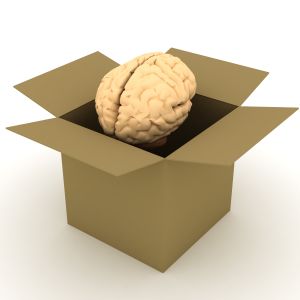Experienced brain injury attorneys know that falls and car accidents are two of the top causes of injury to the brain. Since many auto accidents and slip and falls happen because someone is negligent, it is not uncommon for personal injury lawsuits to be filed based on a brain injury occurring. The compensation for the lawsuits depends in part upon the severity of brain injury. 
When most people think of serious brain injuries, they think of being in a coma, of permanent brain damage, or of traumatic brain injury. Concussions, the most common type of brain injury, are widely viewed as not being all that serious. The reality, however, is that even a simple concussion can do lasting damage.
Concussions are a Serious Matter
According to Smithsonian.com, a new study has shown that abnormalities in the brain caused by a concussion can persist for as long as four months after an injury happens, even after the behavioral symptoms of a concussion have ended.
A concussion refers to bruising of the brain that occurs after a trauma. Symptoms that are traditionally associated with a concussion can include mental fogginess and memory difficulties, but these symptoms usually fade for most patients after a brief time.
Unfortunately, when a special test called a diffusion MRI is performed on the brains of those who recently suffered a concussion, the test reveals that the problems in the brain don’t disappear along with concussion symptoms. The gray matter in the prefrontal cortex can still remain damaged even months after the trauma and concussion has occurred.
The abnormalities that the diffusion MRI detects may not be detected by standard CT scans or even by standard MRI testing. A diffusion MRI works differently because it measures how molecules move through different areas of the brain. The movement of the molecules, which are mostly made of water, reflect the underlying structure and architecture of tissue in the brain.
Researches used a diffusion MRI to carefully study 26 patients who had experienced mild concussions four months prior to the testing. The study participants were scanned 14 days after the injuries as well as after the four month period. At each scan, the patients were given behavioral and memory tests as well. The test results from the patients with concussions were then compared with the test results of 26 healthy study participants who had not experienced a recent brain injury.
The research showed that people who had concussions performed slightly worse than those who hadn’t on memory and attention tests administered 14 days after the injury. There were also structural changes in the prefrontal cortex of those who had been concussed.
After four months, however, the behavioral gap among the patients with concussions and those who were healthy narrowed. However, changes to the left hemisphere of the brains of concussion victims still remained.
These findings are disturbing as they show that the healing process from even a mild concussion is more complex than originally believed. Patients can suffer both short and long-term consequences to their health as a result of being affected by this lingering damage to the prefrontal cortex.
If you or someone you love has been injured in an accident, contact Jeffrey S. Glassman for a free and confidential appointment to discuss your rights. Call 888-367-2900.
More Blog Entries:
New Booster Seat Recommendations from the IIHS Impact Massachusetts Parents, Boston Personal Injury Attorney Blog, November 20, 2013
 Boston Personal Injury Attorney Blog
Boston Personal Injury Attorney Blog

